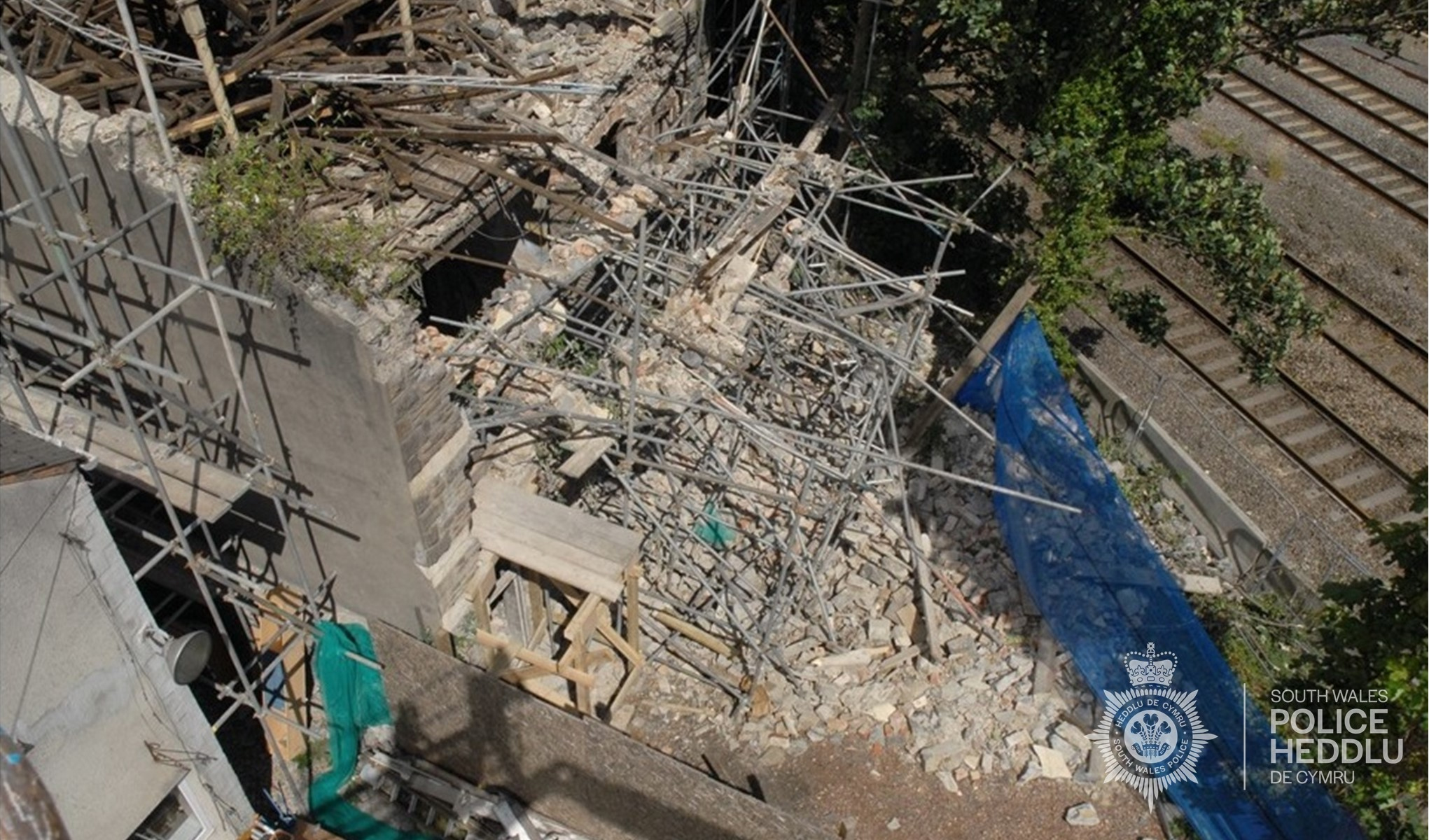Suspended prison sentences, £344,300 fines and £197,700 costs following death when church wall and scaffolding collapse
HSE inspector Liam Osborne: “I sincerely hope that the scaffolding, demolition and consultancy industries in Wales and beyond take time to learn from this terrible tragedy. Pre-work planning, choosing remote methods of demolition, sharing critical information between parties and putting in a system of managed checks would have prevented this incident."
Jeffrey Joseph Plevey died when the stone wall of the former Citadel Church in Splott, Cardiff, collapsed, bringing down scaffolding he had been on, erected so the wall could be dismantled.
Jeffrey Joseph Plevey was 55 and lived in Radyr, a suburb of Cardiff.
Yesterday (2 March) four men involved in the project were given suspended prison sentences at Cardiff Crown Court for health & safety offences relating to the incident and four firms, three of which three of the men were directors, were fined £344,300. The men and firms were ordered to pay costs totalling £197,700.
The wall and scaffolding collapsed on the afternoon of Tuesday, 18 July 2017. Emergency services were called and a recovery operation undertaken by South Wales Fire & Rescue Service and the All Wales Urban Search & Rescue (USAR) team. Mr Plevey was recovered from the rubble but he was pronounced dead at the scene.
Sentencing of the four men had been deferred from 15 December, when Keith Young and Stewart Swain were convicted by a jury of criminal health & safety offences, having been cleared of gross negligence manslaughter.
A jury found Young guilty of failing to take necessary steps to ensure a structure does not collapse when carrying out construction work, contrary to the Construction (Design & Management) Regulations 2015 and the Health & Safety at Work Act 1974. Swain and his company, Swain Scaffolding Ltd, were also found guilty of breaches of the Health & Safety at Work Act.
Two other men, Phil Thomas, from South Wales Safety Consultancy Ltd, and Richard Dean, from NJP Consultant Engineers Ltd, and a fourth company, Strongs Partnership, had previously pleaded guilty to health & safety offences.
A joint investigation was carried out by the Major Crime Team of South Wales Police and the Health & Safety Executive following the incident. It resulted in the 11-week trial held at a court in Swansea Civic Centre where Keith Young and Stewart Swain were convicted on 15 December. They and the two other men appeared before Cardiff Crown Court for sentencing on 2 March.
Keith Young, 74, of Llandough, Vale of Glamorgan, was given a 45-week prison sentence suspended for 18 months and was ordered to pay costs of £66,000.
Stewart Swain, 54, of Rhiwbina, Cardiff, was given a 39-week sentence suspended for 15 months with costs of £25,000.
Philip Thomas, 57, of Thornhill, Cardiff, was given a 36-week sentence suspended for 15 months with costs of £20,000.
Richard Dean, 60, of Abertillery, Blaenau Gwent, was given a 35-week sentence suspended for 15 months with costs of £20,000.
Swain Scaffolding Ltd was fined £120,000 with costs of £25,000, South Wales Safety Consultancy Ltd was fined £97,500 with £17,500 costs, NJP Consultant Engineers Ltd was fined £93,300 with £6,700 costs, and Strongs Partnership Ltd was fined £33,500 with £17,500 costs.
Detective Inspector Stuart Wales, from the South Wales Police Major Crime Investigation Team, said afterwards: “Our thoughts are with Jeff’s family and friends who have waited four-and-a-half years to see justice done following his untimely and avoidable death on July 18, 2017. His family have shown incredible patience, support and dignity throughout what has been a lengthy, challenging and complex investigation.
“I would like to take this opportunity to thank all the witnesses who patiently supported this investigation, particularly colleagues who were working alongside Jeff on the day he died. They have also waited a long time to see justice done and were themselves affected by those avoidable events in Splott.”
HSE inspector Liam Osborne said: "Jeff Plevey died because people were put to work on a scaffold against a towering stone wall that managers, safety professionals and contractors knew, or could see, was obviously unstable before work started.
“The demolition and scaffolding were badly planned and dangerously carried out from the very beginning and throughout the job. Instead of the building being made safer as demolition progressed, it became even more unstable.
“Those people who made bad decisions, gave poor advice, or failed to act in the face of extreme and obvious risk have now been held accountable.”

